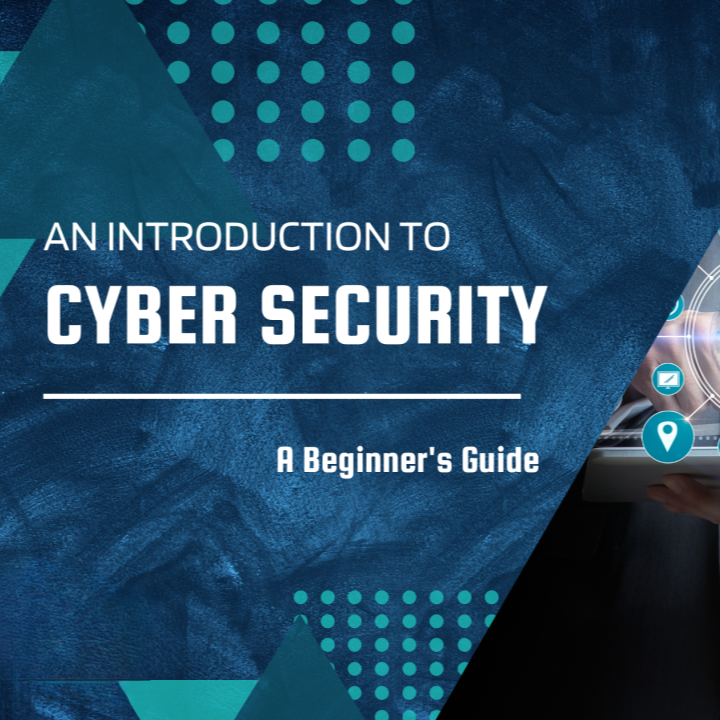Description
In today’s digital age, cybersecurity is more critical than ever. The Beginners Guide to Cybersecurity course comprehensively introduces protecting sensitive information, securing networks, and understanding the modern cyber threat landscape. This course is designed for individuals with little prior knowledge of cybersecurity who are eager to develop the skills necessary to protect themselves and their organizations from cyber threats.
Course Objectives
By the end of this course, participants will:
- Understand Cybersecurity Basics: Learn the core concepts and terminology of cybersecurity, including the CIA triad (Confidentiality, Integrity, Availability) and its importance in the modern world.
- Identify Common Threats: Gain insight into common cyber threats like malware, phishing, ransomware, and social engineering attacks.
- Implement Security Measures: Discover practical steps and best practices for securing personal and organizational information, including password management, data encryption, and secure browsing habits.
- Explore Network Security: Understand the basics of network security, including firewalls, VPNs, and intrusion detection/prevention systems.
- Learn Risk Management: Develop skills in assessing and managing risks, including identifying vulnerabilities and implementing mitigation strategies.
- Understand Legal and Ethical Considerations: Learn about the legal and ethical implications of cybersecurity, including data protection laws and ethical hacking principles.
Course Content
Module 1: Introduction to Cybersecurity
- Definition and importance of cybersecurity
- Overview of the cyber threat landscape
- The CIA triad and its significance
Module 2: Common Cyber Threats
- Malware types and characteristics
- Phishing and social engineering
- Ransomware and its impact
- Case studies of notable cyber attacks
Module 3: Protecting Personal and Organizational Information
- Password management and authentication techniques
- Data encryption and secure communications
- Safe browsing practices and avoiding online scams
Module 4: Network Security Fundamentals
- Basics of network architecture and protocols
- Firewalls and their configuration
- VPNs and secure remote access
- Intrusion detection and prevention systems
Module 5: Risk Management and Mitigation
- Identifying and assessing vulnerabilities
- Risk management frameworks and strategies
- Implementing security controls and policies
- Incident response planning
Module 6: Legal and Ethical Aspects of Cybersecurity
- Overview of data protection laws and regulations
- Ethical hacking and penetration testing
- Privacy considerations in cybersecurity
Course Format
The course is delivered through interactive lectures, hands-on labs, and real-world case studies. Participants will have access to various resources, including video tutorials, reading materials, and practical exercises designed to reinforce learning and build valuable skills.
Who Should Enroll
This course is ideal for:
- Individuals new to cybersecurity seeking a solid foundational understanding
- Professionals in IT and related fields looking to broaden their cybersecurity knowledge
- Business owners and managers aiming to protect their organizations from cyber threats
- Anyone interested in pursuing a career in cybersecurity
Course Benefits
Participants will leave the course with a strong foundation in cybersecurity principles and practices, equipped with the knowledge and skills to protect themselves and their organizations in an increasingly digital world. Whether you’re looking to enhance your professional skill set, secure your personal information, or take the first step towards a career in cybersecurity, this course provides the essential tools and knowledge you need to succeed.







Folasade –
“This Beginners Guide to Cybersecurity course has been an eye-opener for me. I’m completely new to the field, but the course has laid a solid foundation in cybersecurity concepts and best practices. The instructors were knowledgeable and engaging, and the materials were well-organized and easy to understand. I left the course feeling confident in my ability to protect my personal and professional devices and networks from online threats. Overall, an incredibly valuable experience that I highly recommend to anyone looking to enhance their cybersecurity knowledge.”
Memunat –
“This ‘Beginners Guide to Cybersecurity’ course is an excellent starting point for anyone who wants to learn the basics of cybersecurity. The course is well-structured and easy to follow, with clear explanations and plenty of examples. The instructor is knowledgeable and passionate about the subject, and he makes the learning process enjoyable. I highly recommend this course to anyone who wants to learn more about cybersecurity.”
Stanley –
“This course was an excellent starting point for me in the field of cybersecurity. The lessons were comprehensive, clear, and engaging. The instructor provided practical examples and hands-on exercises that helped me understand the concepts thoroughly. Thanks to this course, I feel confident in my ability to identify and mitigate cybersecurity risks, making it a valuable investment for my career growth.”
Jummai –
“I recently completed the Beginners Guide to Cybersecurity course and was thoroughly impressed. The content was comprehensive and well-organized, covering essential cybersecurity concepts and best practices. The instructors were knowledgeable and engaging, making the learning process both informative and enjoyable. I highly recommend this course to anyone looking to enhance their understanding of cybersecurity and protect themselves and their organizations from cyber threats.”
Olawale –
“This ‘Beginners Guide to Cybersecurity’ course provided an invaluable foundation in cybersecurity concepts. The easy-to-understand explanations and hands-on exercises gave me a clear comprehension of the threats and vulnerabilities faced by organizations. The expert instructor’s guidance and real-world examples made the learning process engaging and effective. I highly recommend this course to anyone looking to expand their cybersecurity knowledge and skills.”